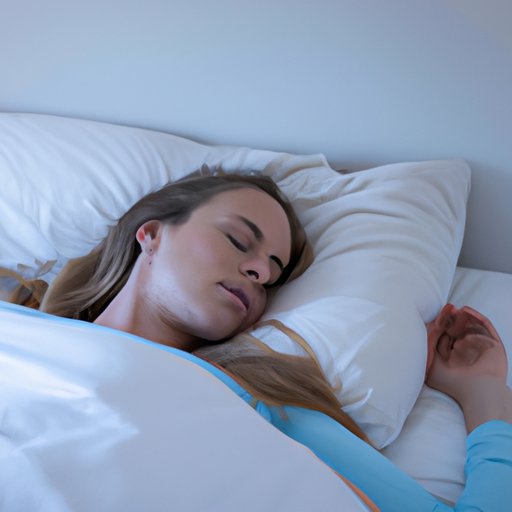
How to Fall Asleep Faster: Tips and Techniques for Better Sleep
Do you find yourself tossing and turning in bed, staring at the ceiling, unable to fall asleep? If so, you’re not alone – difficulty in falling asleep is a common problem that affects millions of people worldwide. It can be frustrating, tiring, and detrimental to our overall health and wellbeing. Fortunately, there are several strategies and techniques that you can use to fall asleep faster and enjoy a better quality of sleep. In this article, we’ll explore some of the best tips and techniques for achieving that elusive restful slumber.
Create a Pre-Sleep Routine
Your pre-sleep routine is a series of activities that you engage in every night before bed to signal to your mind and body that it’s time to wind down and relax. A pre-sleep routine is essential because it helps lower your stress levels, clear your mind, and prepare your body for sleep.
Examples of calming activities you can do before bed include:
- Taking a warm bath or shower
- Reading a book (preferably fiction or nonfiction that’s not too engaging)
- Listening to soothing music or sounds, such as nature sounds or white noise
- Writing in a journal or doing some light stretching or yoga.
To be effective, your pre-sleep routine needs to be consistent. Try to stick to the same activities every night, and do them in the same order. Over time, your body will learn to associate these activities with sleep, and you’ll find it easier to fall asleep naturally.
Limit Screen Time before Bed
We live in an era of constant connection and technology, which means that we’re surrounded by screens – laptops, smartphones, tablets, TVs, and more. While screens can be useful and entertaining, they also emit blue light that can disrupt our sleep patterns by suppressing melatonin – the hormone that regulates our sleep-wake cycle.
To limit your screen time before bed:
- Avoid using screens at least an hour before bed
- Try reading a physical book or magazine instead of an e-book or online article
- Engage in low-stress activities like coloring, drawing, or knitting
- Use “night mode” or “blue light filter” settings on your devices to reduce blue light exposure
If you find it difficult to break the habit of using screens before bed, try reducing your screen time gradually. For example, start by setting a timer for 30 minutes before bed, and gradually work your way up to an hour or more.
Adjust Your Sleep Environment
Your sleep environment plays a big role in your sleep quality – if your environment is uncomfortable or noisy, it can make falling asleep much more challenging. To optimize your sleep environment:
- Adjust the temperature to a comfortable level – usually between 60 and 67 degrees Fahrenheit
- Invest in high-quality bedding, including pillows, sheets, and comforters
- Reduce potential distractions, such as noise or light, by using earplugs, blackout curtains, or white noise machines
By making these changes, you can create a conducive sleep environment that promotes relaxation and tranquility.
Try Meditation or Deep Breathing Exercises
Meditation and deep breathing exercises are powerful tools for relaxation and stress reduction, both of which can help promote better sleep. The beauty of these practices is that they’re simple, free, and can be done anywhere, anytime.
To practice meditation:
- Find a quiet and comfy place to sit or lie down
- Close your eyes or focus on a single point
- Breathe slowly and deeply, focusing on your breath
- If your mind wanders, gently bring your attention back to your breath
- Continue for 5-10 minutes, or longer if you prefer
There are many apps and online resources that offer guided meditation sessions, including Headspace, Calm, and Insight Timer.
To practice deep breathing exercises:
- Find a quiet and comfy place to sit or lie down
- Breathe in deeply through your nose, counting to four as you do so
- Hold your breath for a few seconds
- Slowly exhale through your mouth, counting to six as you do so
- Repeat for several cycles, focusing on your breath and relaxing your body
Consider Taking Natural Sleep Aids
If you’ve tried all the tips and techniques above and still struggle with falling asleep, you may want to consider natural sleep aids. These include supplements, herbs, and teas that can aid relaxation and sleep promotion.
Some of the natural sleep aids that have been shown to be effective include:
- Valerian root
- Chamomile tea
- Magnesium supplements
- Melatonin supplements
However, it’s important to consult with a healthcare professional before taking any new supplements, especially if you’re taking medications or have underlying health conditions.
Conclusion
Insomnia and difficulty in falling asleep can be frustrating and disruptive to our daily lives. Fortunately, by adopting simple lifestyle changes and incorporating relaxation techniques, you can improve your sleep quality and enjoy a more restful slumber. Stick to a pre-sleep routine, limit screen time, adjust your sleep environment, and try meditation or natural sleep aids to find what works best for you. Remember to be patient and consistent, and don’t hesitate to seek professional help if your sleep problems persist.




